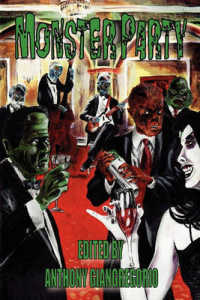- ホーム
- > 洋書
- > 英文書
- > Performing Arts
Full Description
Often regarded as a playwright "beyond nationality," Shakespeare has played a central role in Ukraine's cultural history over the past two centuries. His works have served as both a lens for exploring Ukraine's historical and cultural identity and as a shared medium through which Ukrainian poets, dramatists, and theatre artists have communicated with the world.
Shakespeare in Ukraine: Mirror, Prism, Megaphone, by award-winning Shakespearean and theatre historian Irena R. Makaryk, analyzes key moments of Ukraine's engagement with Shakespeare. The text traces the evolution of Shakespeare in Ukraine, from his early influence on figures like Taras Shevchenko and Lesya Ukrainka to the groundbreaking theatrical work of Les Kurbas, the first to stage Shakespeare in 1920, a bold assertion of cultural identity and independence. The volume also explores the defiant production of Hamlet under Nazi occupation in 1943, adaptations of Shakespeare's works under Soviet rule, Shakespeare commemorations in the Cold War era, and the efflorescence of Shakespeare productions in the post-independence period.
Rich with astute scholarly observations and fascinating historical details, Shakespeare in Ukraine investigates the multifaceted roles of Shakespeare during periods of great cultural and political upheaval. From the early Soviet period to the ongoing war with Russia, Makaryk offers insights into the enduring power of Shakespeare and the way he amplifies Ukraine's creative and cultural imagination.
Contents
Acknowledgments
1. Introduction: Shakespeare in Ukraine: Mirror, Prism, Megaphone
2. Calibans All: Shakespeare at the Intersection of Colonialisms
3. "North by North-West": Shevchenko and Shakespeare
4. Ophelia as Poet: Lesia Ukrainka and the Woman as Artist
5. Periphery against Centre: Hamlet in Early Soviet Ukrainian Poetry
6. Shakespeare Right or Wrong?
7. The Perfect Production: Les Kurbas's Analysis of the Early Soviet Audience
8. In a Crooked Mirror: Hamlet as Intertext in the USSR 1934-43
9. Hamlet, 1943
10. Commemoration as Amplification: The "Universal" versus the National Bard
11. "Antic Dispositions": Shakespeare, War, and Cabaret
12. Afterword: Shakespeare at War Today
Nataliya Torkut, "To the Immortal Memory of William Shakespeare"



![黄昏(誰れぞ彼) - 老いその先は寄り添い婚[離別婚]](../images/goods/ar2/web/imgdata2/48344/4834402738.jpg)




